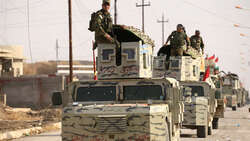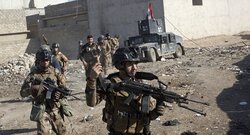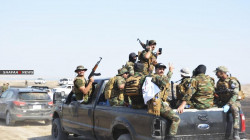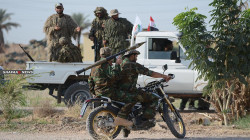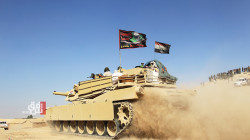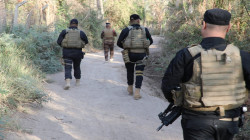The road of Hash: Iraqis at the point of a weapon no less treacherous than ISIS
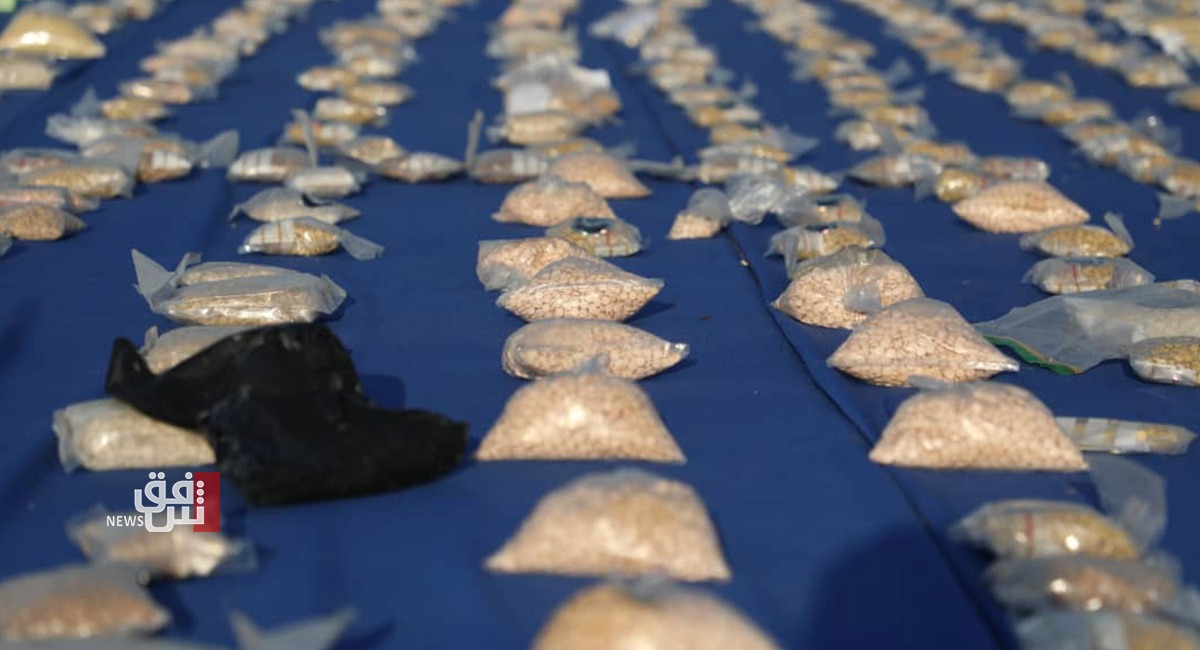
Shafaq News / Even though drug trafficking and abuse are not brand-new phenomena in Iraq, unfortunately, it became quite noticeable recently the increasing numbers of traffickers, users, and dealers spawning across the country, jeopardizing the integrity of the Iraqi society and the future of its children.
Official sources in the Iraqi Military Intelligence confirmed to Shafaq News agency that dealers and traffickers are captured on a daily basis. "Dozens fall into the grip of the security services every day," one source said.
"Inquiries with the arrestees prior to handing them over to the relevant authorities and courts showed that two countries are the main source of drug supply to Iraq and then to other neighboring countries," the source continued.
"The first country is Iran, which supplies the Amara, Basra, and Nasiriyah in the south of the country. From there, the drugs are distributed to the rest of the southern governorates, then to Kuwait and Saudi Arabia. The second country is Lebanon, where the southern part of the country and the Bekaa are famous for manufacturing narcotics. The drugs travel through Syria to western Iraq, specifically al-Anbar," the source elaborated.
According to observers and security experts in al-Anbar, the border areas of al-Rutbah and al-Qa'im have become a corridor for drug dealers from Lebanon and Syria, taking advantage of the lack of control over the Iraqi borders. The drugs are then distributed to the rest of al-Anbar and other governorates.
"The phenomenon of drug trafficking is recent. It emerged in the aftermath of the U.S. invasion in 2003 as a result of the chaos caused by the war," said Imad al-Dulaimi, the administrator of al-Rutba district.
"Al-Rutba district is a passageway for drug dealers. It borders Saudi Arabia, Jordan, and Syria; the latter has poorly controlled borders with Iraq which helps drug traffickers move their stash in and out of the country through alRutba and other Western territories," al-Dulaimi told Shafaq News Agency, "besides several other reasons that have exacerbated the situation, the poor living conditions prompted many of al-Rutba citizens to pursue this dangerous path."
"This phenomenon destroys the society. It is no less dangerous than ISIS or other terrorist groups. For this reason, we must continue to fight it."
"The central and local governments and security agencies continuously arrest drug dealers and users to alleviate this phenomenon, especially in al-Rutba and other western regions. As a result, many of them have been arrested and brought to justice to receive their just punishment," al-Dulaimi added.
"As a local administration, we asked Imams and preachers to deliver religious sermons that illustrate the prohibition of drug trafficking and abuse. In addition, we hold cultural workshops to educate the population about its gravity. The police play a vital role in guiding and educating the community on how to uphold this phenomenon," he continued.
Al-Dulaimi called on the commander-in-chief of the armed forces, Prime Minister Mustafa al-Kadhimi, and the security command in al-Anbar to "intensify efforts to prosecute drug traffickers and provide jobs for the unemployed persons; two major contributors to cease the aggravation of the situation."
Regarding the border district of al-Qa'im in the west of al-Anbar, a security source attributed "the prevalence of drugs in al-Anbar, especially in al-Qa'im district, is mainly due to al-Qa'im's location as a border area adjacent to Syria."
"The drugs are transported from Lebanon to Syria and then to Iraq via an unofficial border-crossing run by Kata'ib Hezbollah and al-Nujaba," the source told Shafaq News Agency, "drugs are ubiquitous in al-Qa'im. Every single week, dealers and traffickers carrying massive quantities of drugs are apprehended. Last week, a group was caught in possession of 17 kg of narcotic pills."
More perilous than ISIS
"Not all the drugs enter the country by traffickers. Some militiamen, who are not even subject to inspection or law, pursue drug trafficking to fund their terrorist operations and pay the salaries of their fighters," said Brigadier General A'yad al-Tufan, an expert in Iraqi security.
"Terrorist organizations and their proponents use drugs to appeal to young people and recruit them. Initially, they offer free doses. However, after they become addicted, they sell it to them with tens of thousands of dinars. The abuser, who became an addict, would buy them at all costs," he continued.
"I have much evidence about crimes committed by drug addicts to buy drugs. For example, in Karbala, an addict killed his mother, father, and five siblings. In addition, many young people committed suicide because they became unable to afford drugs. Hence, it is only plausible to deem this phenomenon more serious than ISIS," he added, "closing liquor stores was another major reason for drugs abuse. It complicated the phenomenon throughout Iraq, even in the Kurdistan Region."
"The majority of drug traffickers are militia and mafia leaders. They will not allow desisting it the same way they would not allow others to traffic drugs from countries other than Iran and Lebanon," he said, "the efforts of the government and the security forces are not sufficient to cease or halt this phenomenon; especially because many drug traffickers are not subject to inspection at checkpoints or in their houses because they are linked to external parties. Therefore, the state must tighten sanctions against traffickers because they sustain drugs scourge, which shall be combatted by law and Sharia."
